As the first new moon of Ramadan rises, more than 1 billion Muslims around the world embark on the holiest spiritual journey of the year.
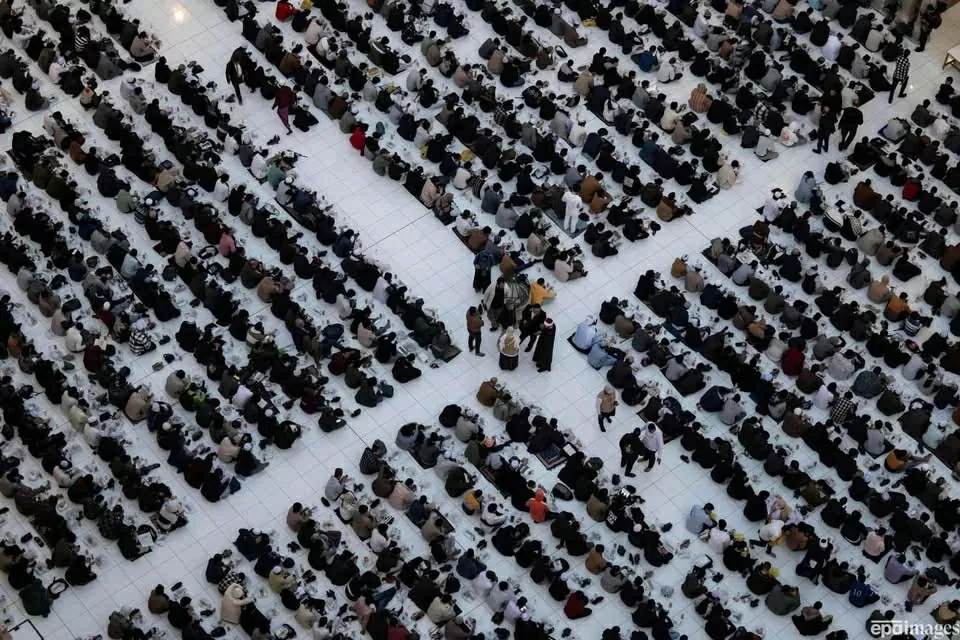 |
| Muslims pray during the holy month of Ramadan. (Source: EPA) |
Ramadan - it is a time of meditation, repentance, self-examination and turning to the Almighty. For Muslims, Ramadan is not only a festive occasion but also a journey of purifying the soul, building patience and spreading love.
The Spirit of Ramadan: When the Soul Turns to the Almighty
Ramadan begins on the first day of September according to the Hijri Islamic calendar, which is based on the cycles of the moon. Because the Islamic calendar is about 10-12 days shorter than the Gregorian calendar each year, the month of Ramadan changes every year. This year, Ramadan begins on February 28 and lasts for one month.
During the month of Ramadan, Muslims abstain from food, drink, and unhealthy behavior from dawn to dusk. It is a strict discipline to control desires and purify the soul. But more than that, it is a reminder to be grateful - to be grateful for the simple things that we sometimes forget: a glass of cool water, a small piece of bread, or even peace of mind.
More than just a time to connect with God, Ramadan is also a time for families to gather, communities to unite, and hearts to join in prayer. Mosques are packed with thousands of worshippers each evening, listening to the soulful recitation of the Qur'an.
Egyptians and the Colors of Ramadan
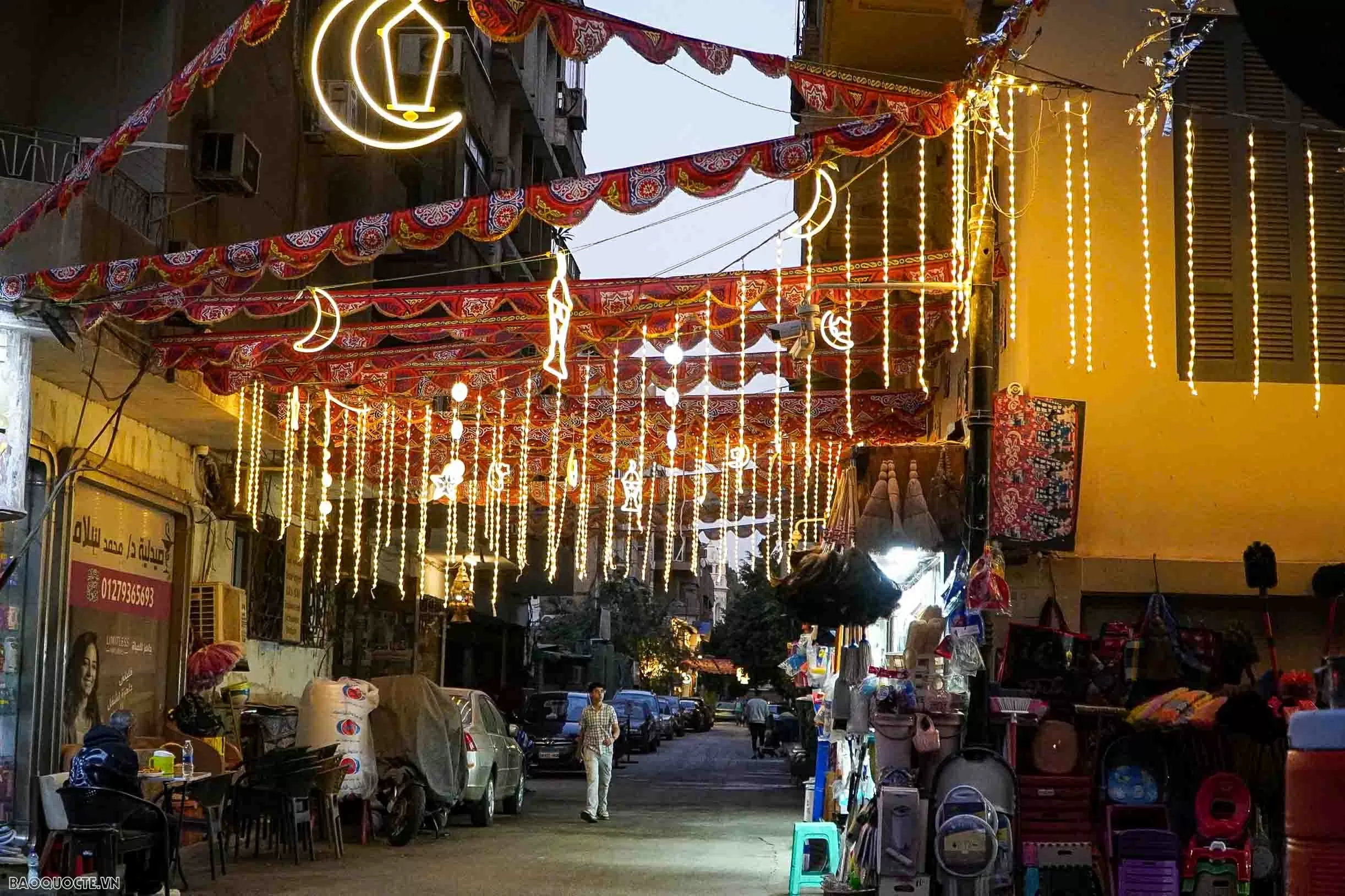 |
| Cairo streets are decorated with colors during Ramadan. (Photo: Trang Pham) |
Ramadan in Egypt stands out with its unique cultural colors, a harmonious combination of beliefs and daily life. As Ramadan approaches, Egypt seems to put on its most colorful cloak. The ancient streets of the capital Cairo and many large cities suddenly become splendid with fanous lanterns of all shapes and sizes, shimmering in colored lights, which is a unique feature of Ramadan in Egypt and has become an indispensable symbol of the sacred month.
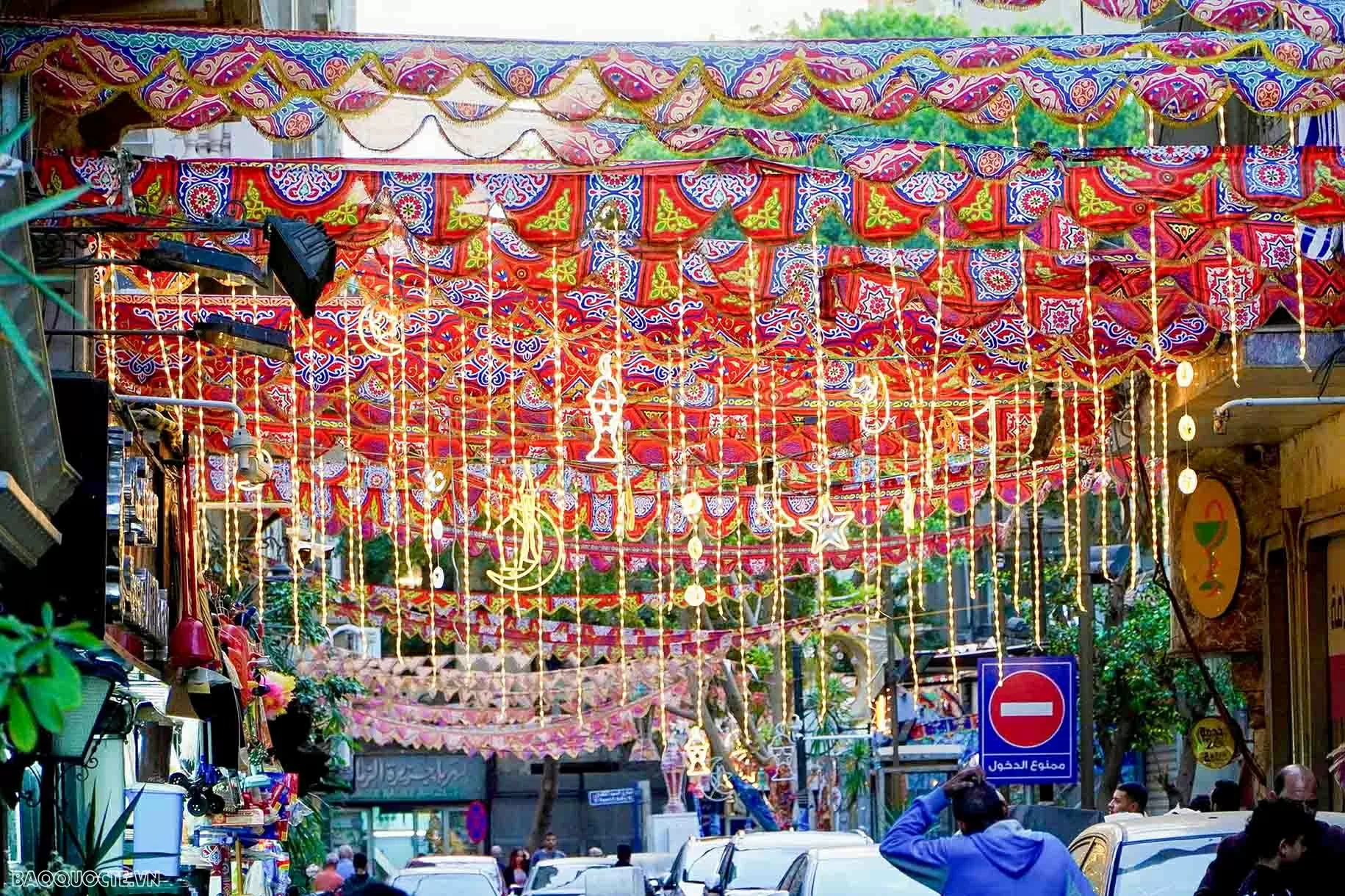 |
| The vibrant colors of Cairo streets during Ramadan. (Photo: Trang Pham) |
The Egyptian iftar (meal after sunset or “fast breaking”) is also special with traditional dishes such as koshari - rice mixed with lentils and noodles, fatta - grilled meat with rice and toasted bread and sweet dishes such as crispy kunafa covered with cheese or qatayef with creamy filling. In particular, qamar al-din dried apricot juice becomes an indispensable drink, cooling the body after a long day of fasting under the hot sun.
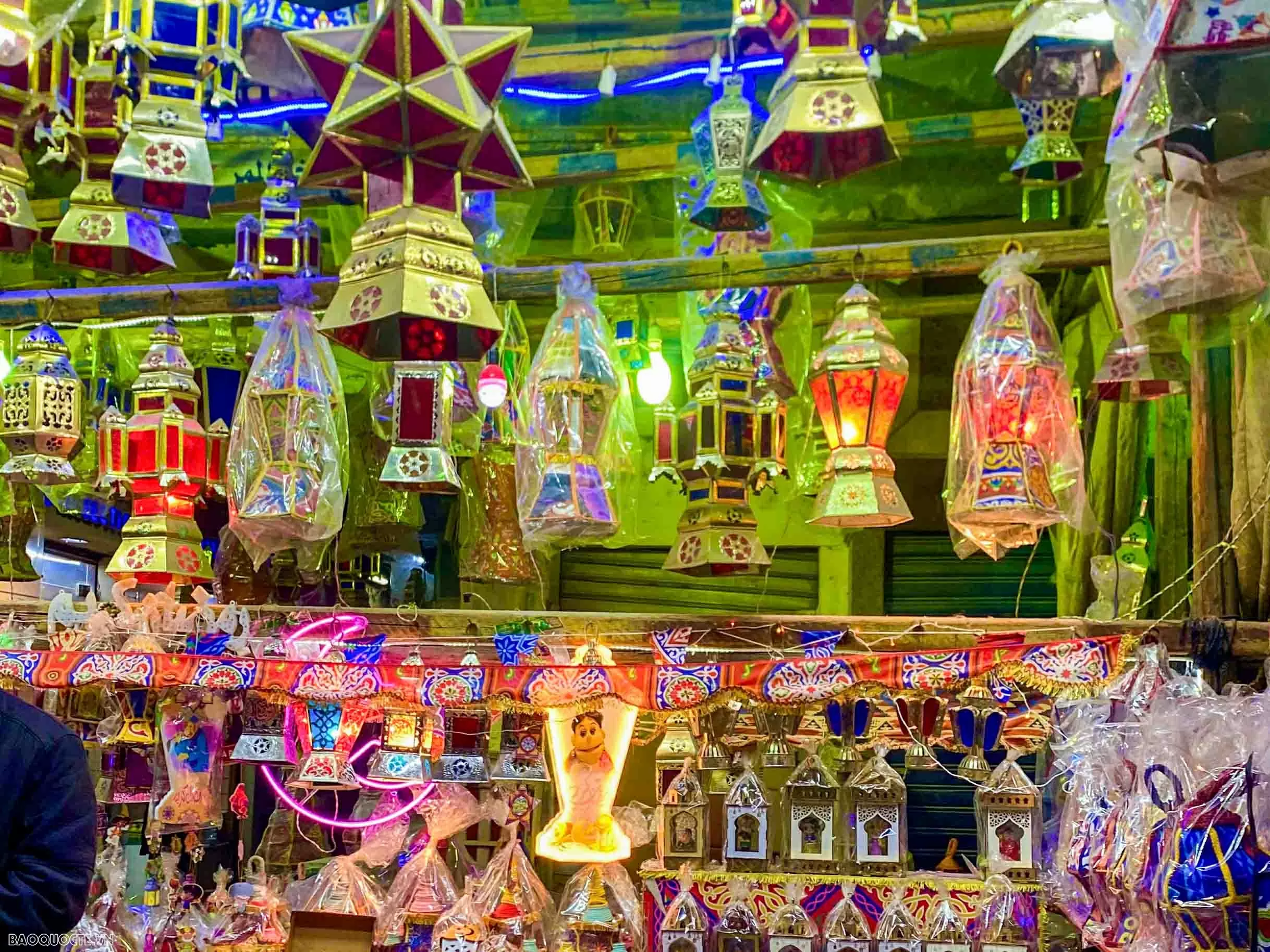 |
| The streets are decorated with colorful fanous lanterns. (Photo: Trang Pham) |
Meals of Kindness
During Ramadan, Egyptians also organize “Mawaed Al-Rahman” charity meals along the streets, where everyone, rich or poor, is welcome. Dedicated volunteers prepare delicious meals to share with the poor, the homeless and migrant workers.
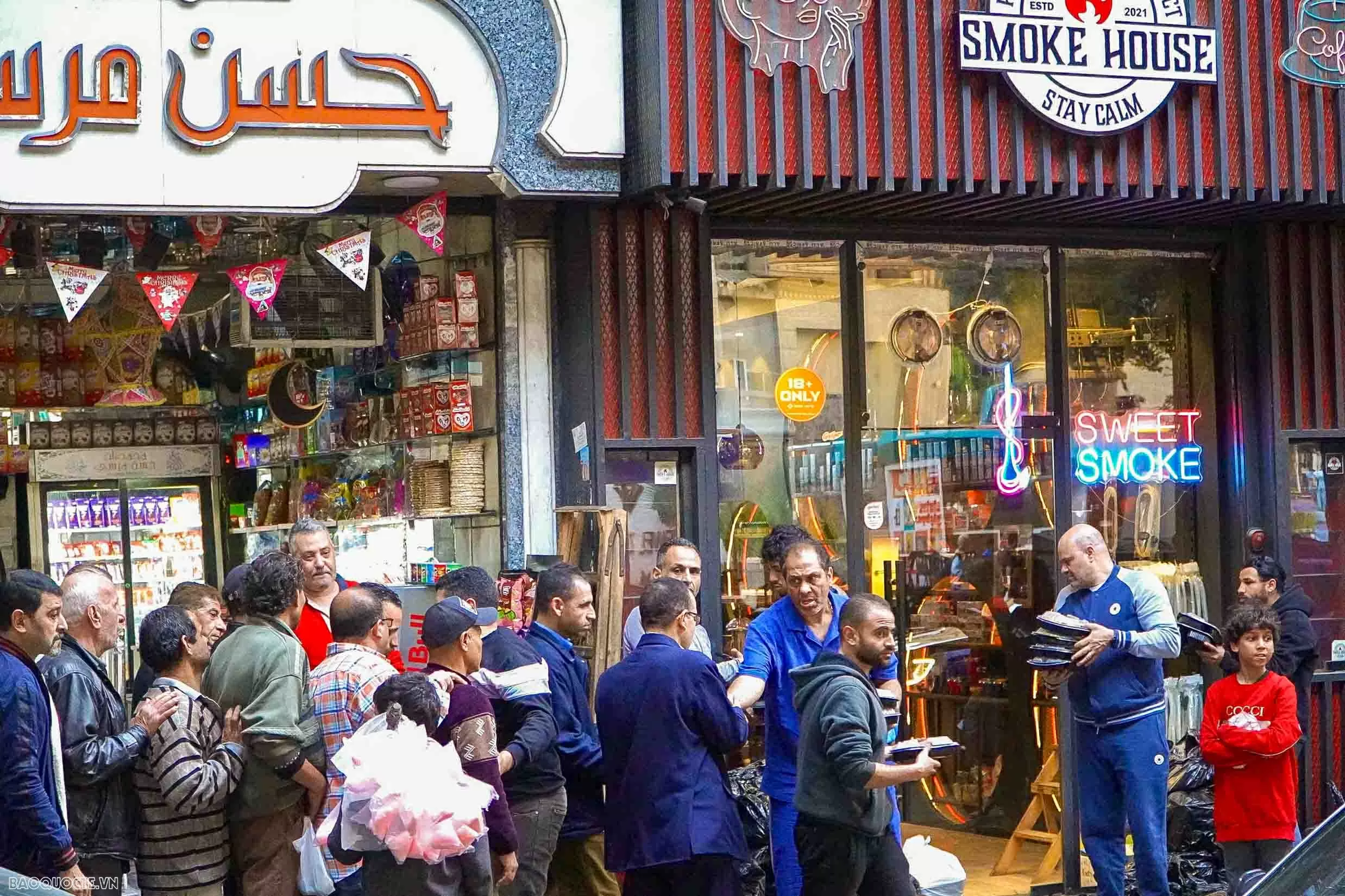 |
| Volunteers share food with the poor in Cairo. (Photo: Trang Pham) |
This spirit of solidarity is not only a religious responsibility but also an expression of compassion and empathy for difficult circumstances. For Egyptians, Ramadan is not only an occasion to connect with Allah but also an opportunity to spread humanity and help each other in difficult times.
The Joy of Eid al-Fitr - Closing the Spiritual Journey
As Ramadan comes to a close, Eid al-Fitr begins with joy and celebration. Egyptians don new clothes, join in communal prayers at mosques, and enjoy a family feast. Children eagerly receive traditional cash gifts called “eidiya,” and hugs and well wishes spread joy across faces.
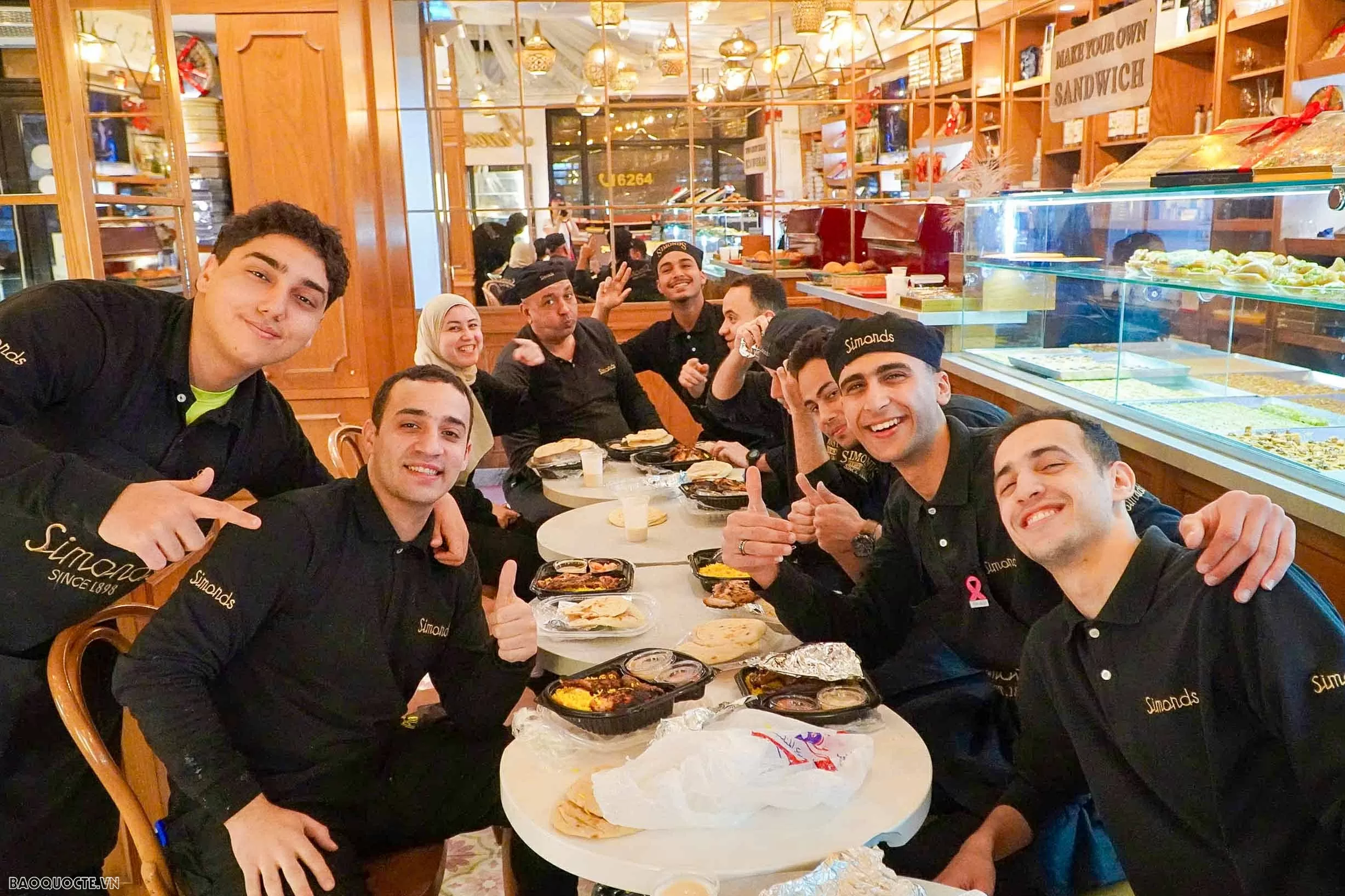 |
| Egyptians often pray and eat ifta together. (Photo: Trang Pham) |
For Muslims in general and Egyptians in particular, Ramadan is not only an occasion to show devotion but also a journey of self- discovery , spiritual renewal and community connection. Ramadan comes and goes, but its echoes remain in everyone's heart. It is a reminder of gratitude, the power of sharing and the profound meaning of human love.
Source: https://baoquocte.vn/thang-ramadan-hanh-trinh-tam-linh-cua-nguoi-hoi-giao-va-net-dac-trung-o-ai-cap-308133.html




![[Ảnh] Chủ tịch nước Lương Cường tiếp Bộ trưởng Quốc phòng Thổ Nhĩ Kỳ Yasar Guler](https://vphoto.vietnam.vn/thumb/1200x675/vietnam/resource/IMAGE/2025/9/11/7f1882ca40ac40118f3c417c802a80da)

![[Photo] General Secretary To Lam chairs the Politburo's working session with the Standing Committee of the National Assembly Party Committee](https://vphoto.vietnam.vn/thumb/1200x675/vietnam/resource/IMAGE/2025/9/11/e2033912ce7a4251baba705afb4d413c)




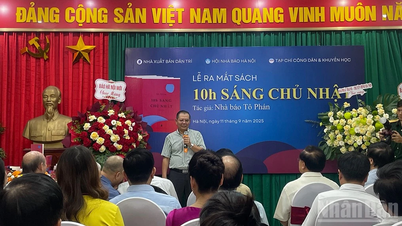






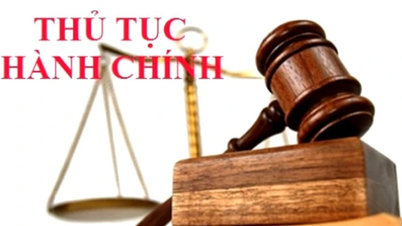







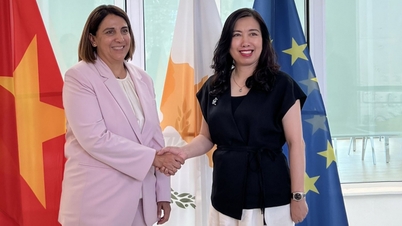


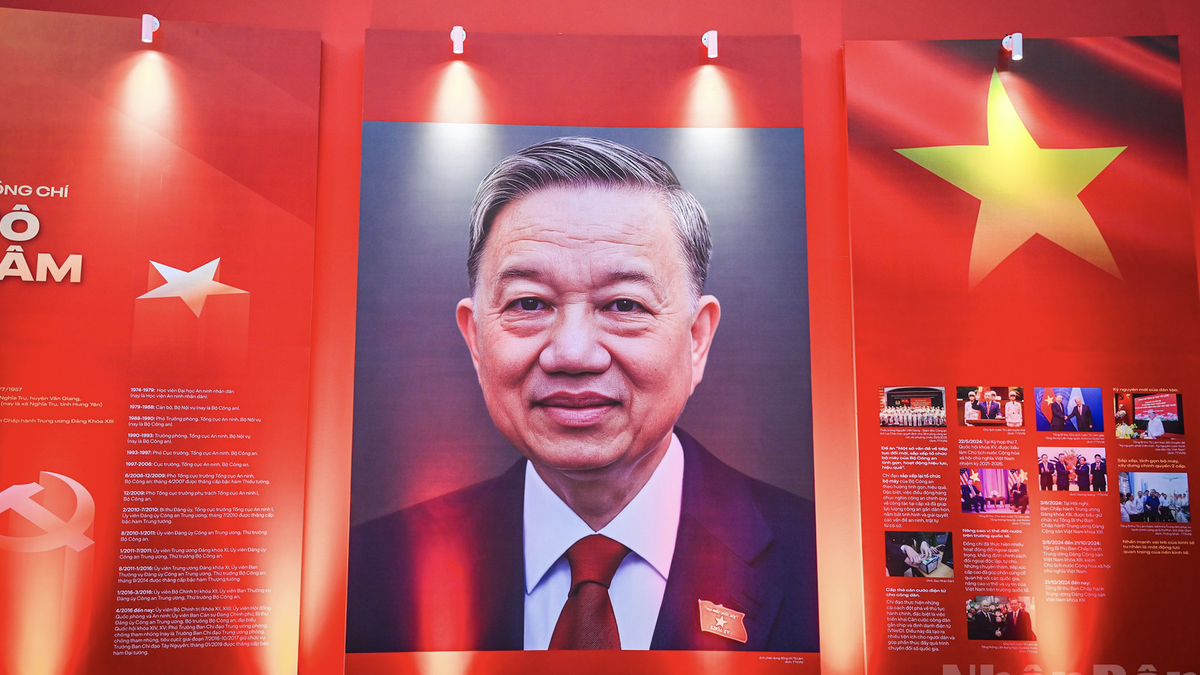
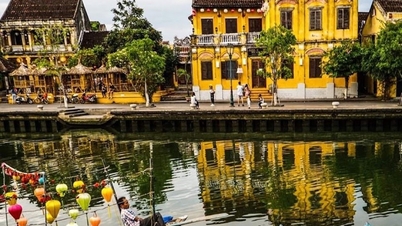


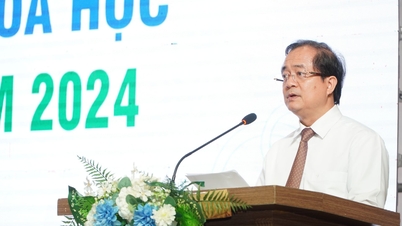








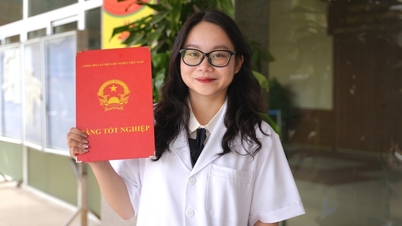







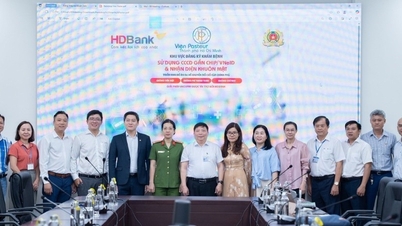

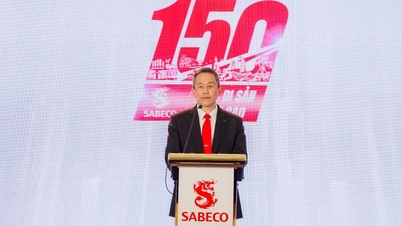








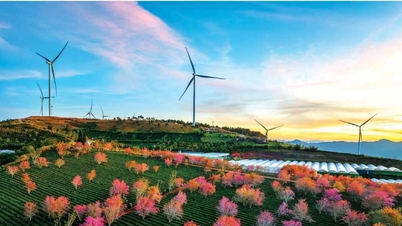




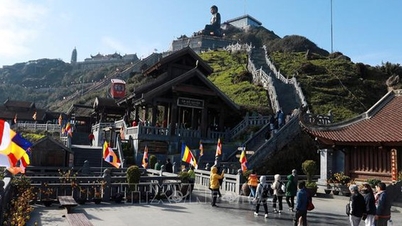

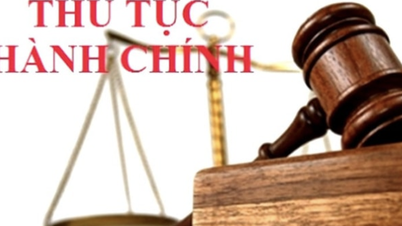


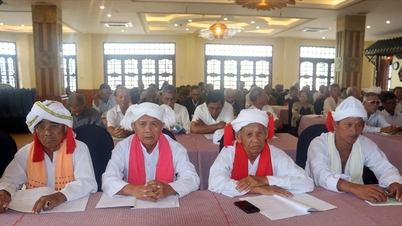





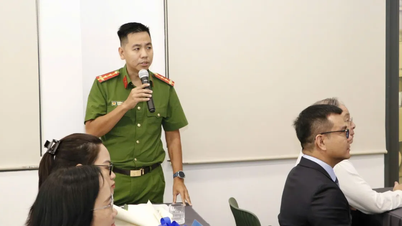





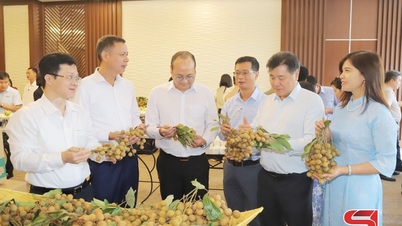









Comment (0)